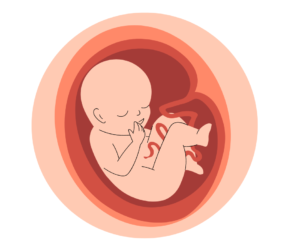
How to get pregnant??
To increase your chances of getting pregnant, here are some general tips and recommendations:

Maintain a Healthy Lifestyle: Start by adopting a healthy lifestyle. Eat a balanced diet rich in fruits, vegetables, whole grains, and lean proteins. Avoid smoking, excessive alcohol consumption, and recreational drugs, as they can negatively impact fertility. Regular exercise and maintaining a healthy weight can also improve your chances of conceiving.

Track Your Menstrual Cycle: Understanding your menstrual cycle and identifying your most fertile days can be helpful. Typically, ovulation occurs around the middle of the menstrual cycle. You can use various methods to track your cycle, such as charting basal body temperature, monitoring cervical mucus changes, or using ovulation predictor kits.

Have Regular, Timed Intercourse: Aim to have regular sexual intercourse throughout your menstrual cycle, especially during your fertile window. This increases the likelihood of sperm being present when you ovulate. Ovulation usually occurs 12-24 hours after the release of an egg, and sperm can survive in the female reproductive system for up to 5 days.

Stop using condoms and other contraceptive methods: If you want to get pregnant, the first step is to stop using any type of contraception like condoms, contraceptive pills and copper T. After you stop taking contraceptive pills, your period will became normal quite quickly. So you can get pregnant within 1-2 months. But if you have been taking hormonal injections as contraception, your body can take many months to go back to normal. If you have an IUD (Intrauterine Device) like copper T or ring. You can get it removed by a doctor.

Reduce Stress: High levels of stress can affect fertility. Find healthy ways to manage stress, such as practicing relaxation techniques, engaging in hobbies, or seeking support from loved ones. Consider incorporating stress-reducing activities like yoga, meditation, or regular exercise into your routine. 

Seek Preconception Health Care: It’s a good idea to visit a healthcare professional specializing in reproductive health to discuss preconception care. They can provide guidance on nutrition, lifestyle changes, and any specific considerations based on your medical history.

Understand Your Partner’s Health: It’s important for both partners to maintain good overall health. Encourage your partner to adopt a healthy lifestyle and avoid habits that may affect fertility, such as smoking or excessive alcohol consumption. If you have concerns about your partner’s fertility, encourage them to seek medical advice as well.

Remember that fertility is a complex topic, and it may take time for some couples to conceive. If you’ve been trying to conceive without success for an extended period (typically a year for couples under 35, or six months for couples over 35), it’s advisable to consult a fertility specialist for further evaluation and guidance tailored to your specific situation.

Always consult with a healthcare professional for personalized advice based on your individual circumstances. They can provide detailed information and offer specific recommendations based on your medical history and any potential underlying factors that may impact fertility.